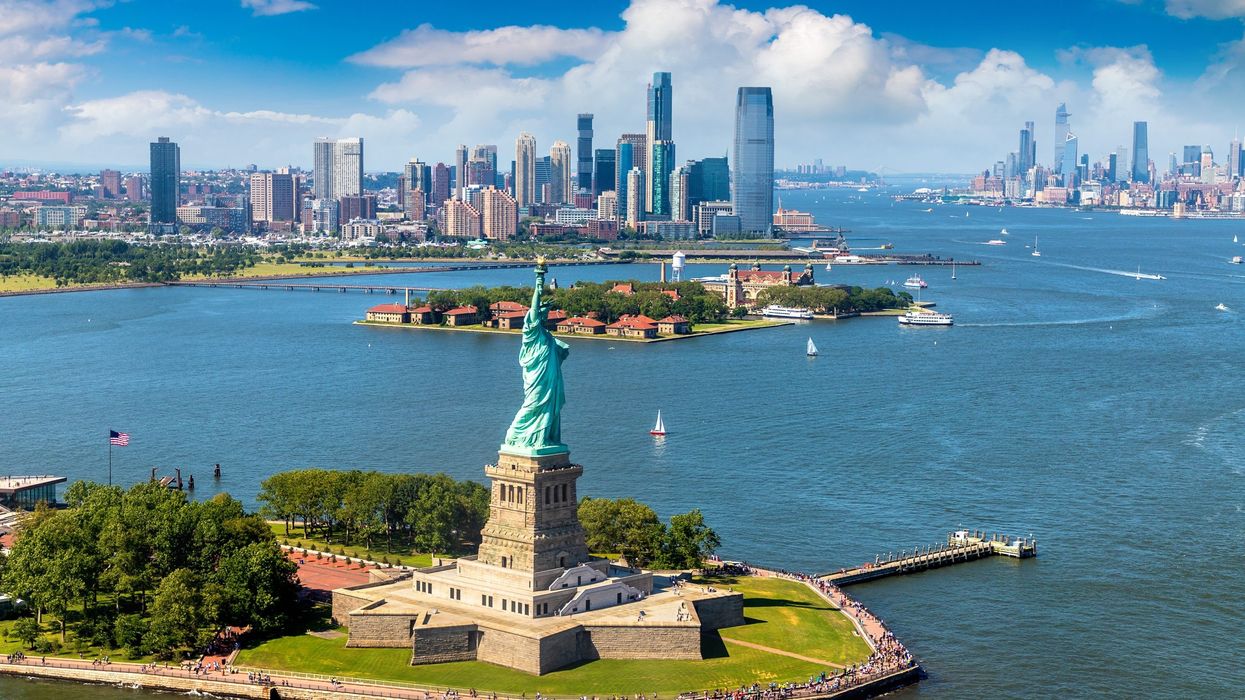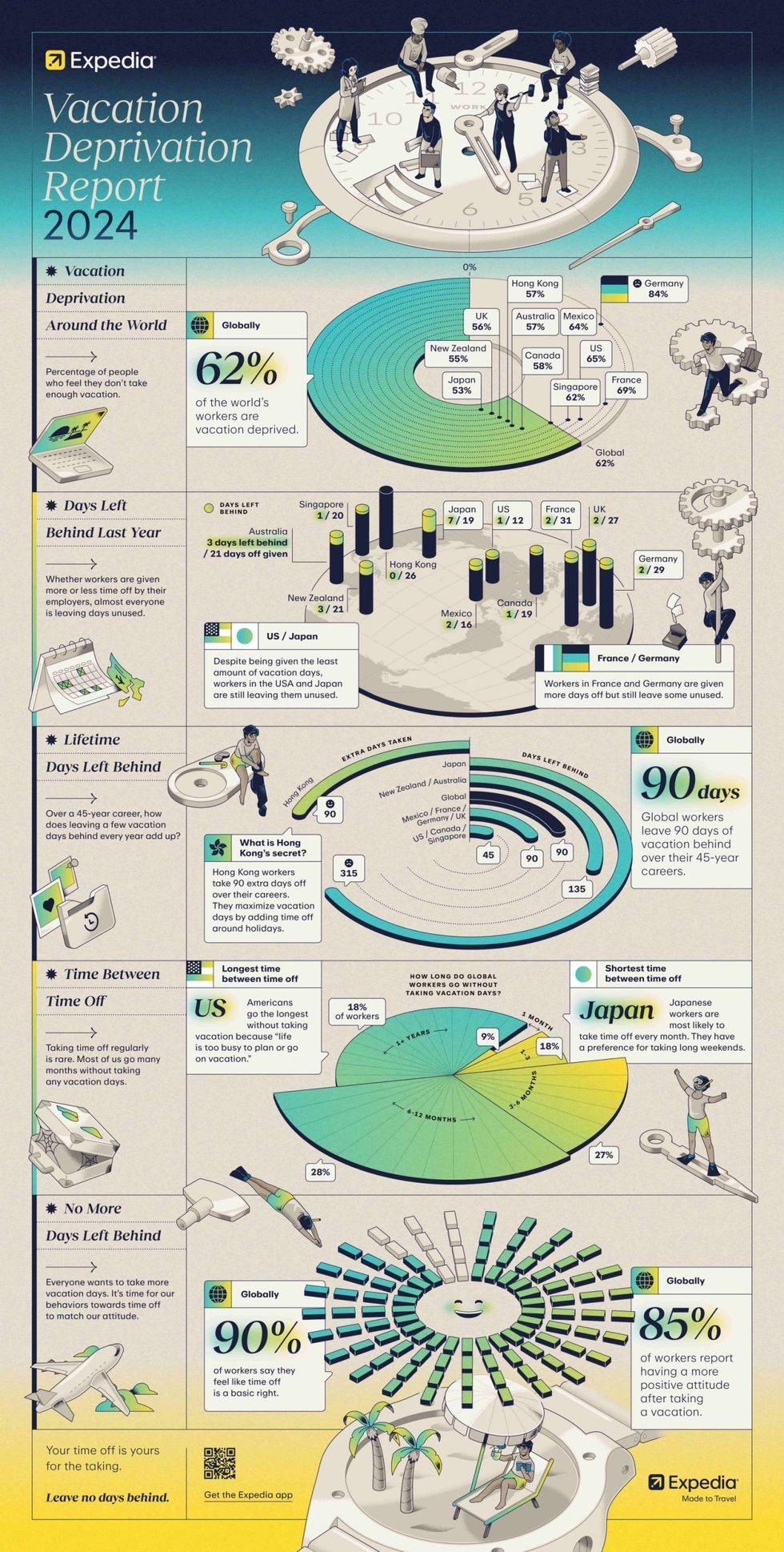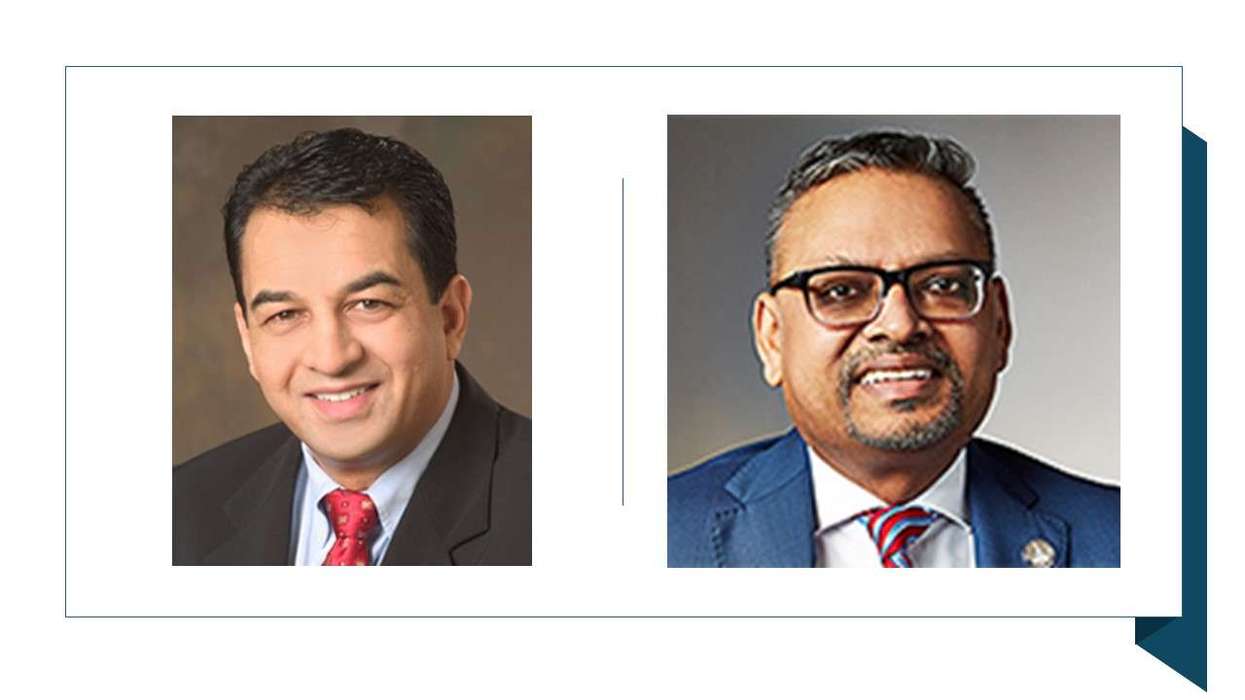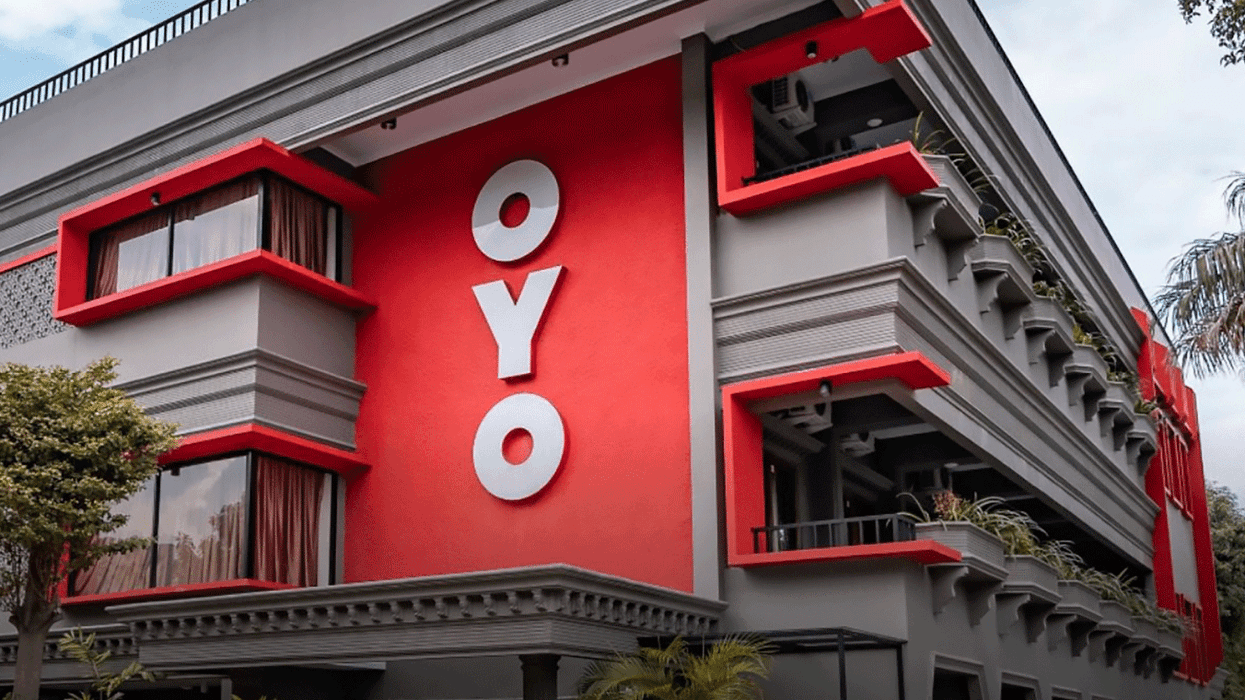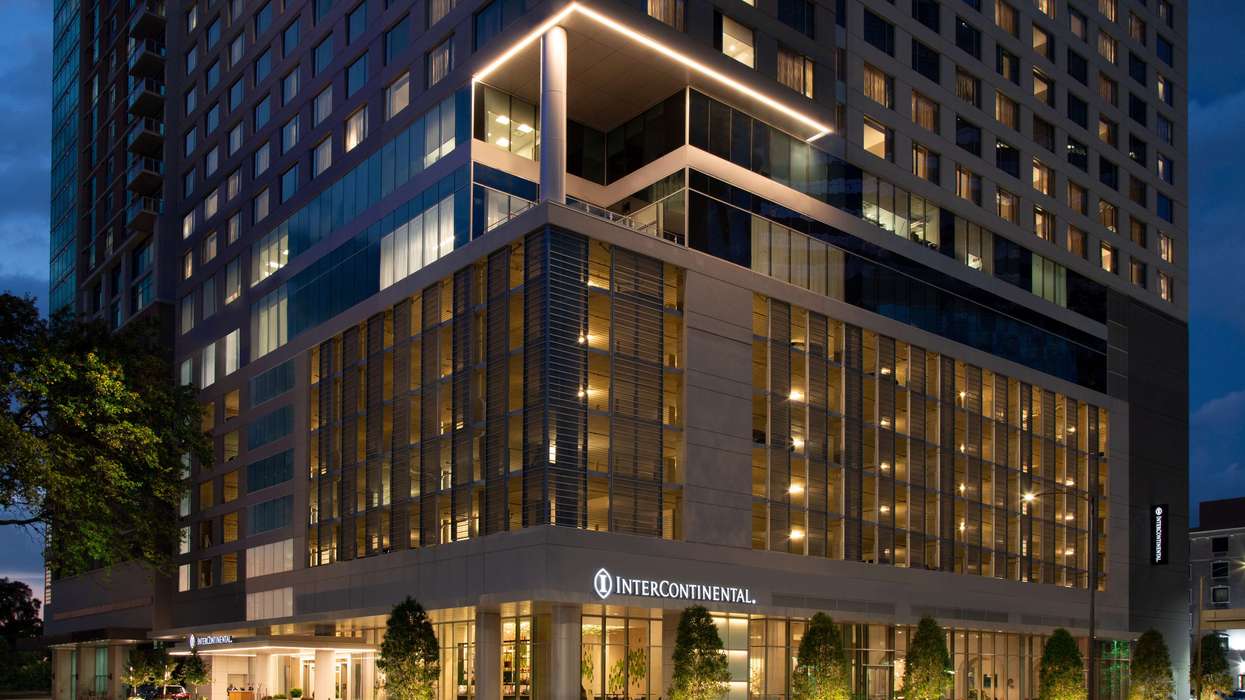APPROXIMATELY 53 PERCENT of Americans plan not to use all their vacation time this year, despite receiving 12 days annually, the fewest of any country, according to a recent study by travel platform Expedia. Vacation deprivation in the U.S., defined as the feeling of not having enough time off, reached an 11-year high at 65 percent, even as rates have decreased in many other parts of the world.
Expedia's 24th annual Vacation Deprivation Report 2024, which surveyed 11,580 people across 11 countries in March and April, found that American and Japanese workers take a similar number of days off each year, 11 and 12 respectively. However, Japan has the world's lowest vacation deprivation level at 53 percent. This may be due to Japanese workers taking more frequent short vacations and prioritizing relaxation during their getaways, Expedia said.
“We may not be able to control how many days off we get, but the research begs the question: What can we learn from other countries that will help Americans break this horrible habit of not using the time off we do have,” said Melanie Fish, Expedia Group brands public relations head. “In Japan, people take time off every month instead of just twice a year. For the French, not even a full month of vacation feels like enough time. Clearly there’s a lot for the U.S. to borrow from, whether it’s spreading your PTO throughout the year or prioritizing rest on your next vacation.”
In the U.S., there is no federal law mandating paid time off. Private sector workers typically receive between 11 and 20 paid days off, depending on their job tenure, according to the Bureau of Labor Statistics. Public sector employees generally receive more, averaging between 13 and 22 days based on years of service, in addition to public holidays. In contrast, European Union member states are required to provide a minimum of 20 days of paid vacation, not including public holidays, with some countries offering more.
U.S. comparison
Japanese respondents are seven times more likely to vacation monthly compared to U.S. workers, 32 percent versus 5 percent, despite taking only one additional day of paid time off annually, 12 versus 11, Expedia said. Americans rank among the lowest in prioritizing rest and relaxation during their trips at 61 percent, while it’s the top goal for 84 percent of Japanese travelers, perhaps contributing to lower feelings of deprivation.
About 19 percent of Americans didn’t use all their time off in 2023, saving for a big trip but often leaving days unused, the study found. In contrast, nearly 30 percent of French respondents prefer to spread their days off evenly throughout the year, avoiding the "big trip."
Despite having a month off annually, France reports higher vacation deprivation levels at 69 percent compared to 65 percent in the U.S., the report said. This is because 93 percent of French workers believe time off is a basic right, compared to 83 percent in the U.S., and view it as critical to overall health and well-being, 94 percent versus 86 percent.
Hong Kong was the only country where respondents didn’t leave vacation days unused, Expedia found. They took more time off on average than they were allocated. Looking ahead, 15 percent vow to do the same again in 2024, the highest globally.
With the highest vacation deprivation rate this year at around 84 percent, 77 percent of German travelers are motivated to make a change and are more determined than ever to use all their time off in 2024, compared to 47 percent in the U.S., Expedia said.
A recent Howdy.com survey found that nearly half of American business travelers prefer "bleisure" trips in 2024. About a quarter choose "workcations" to save paid time off, while 60 percent favor bleisure trips. The rise of bleisure is attributed by 64 percent of American workers to improved work-life balance as business travel rebounds post-COVID-19.
